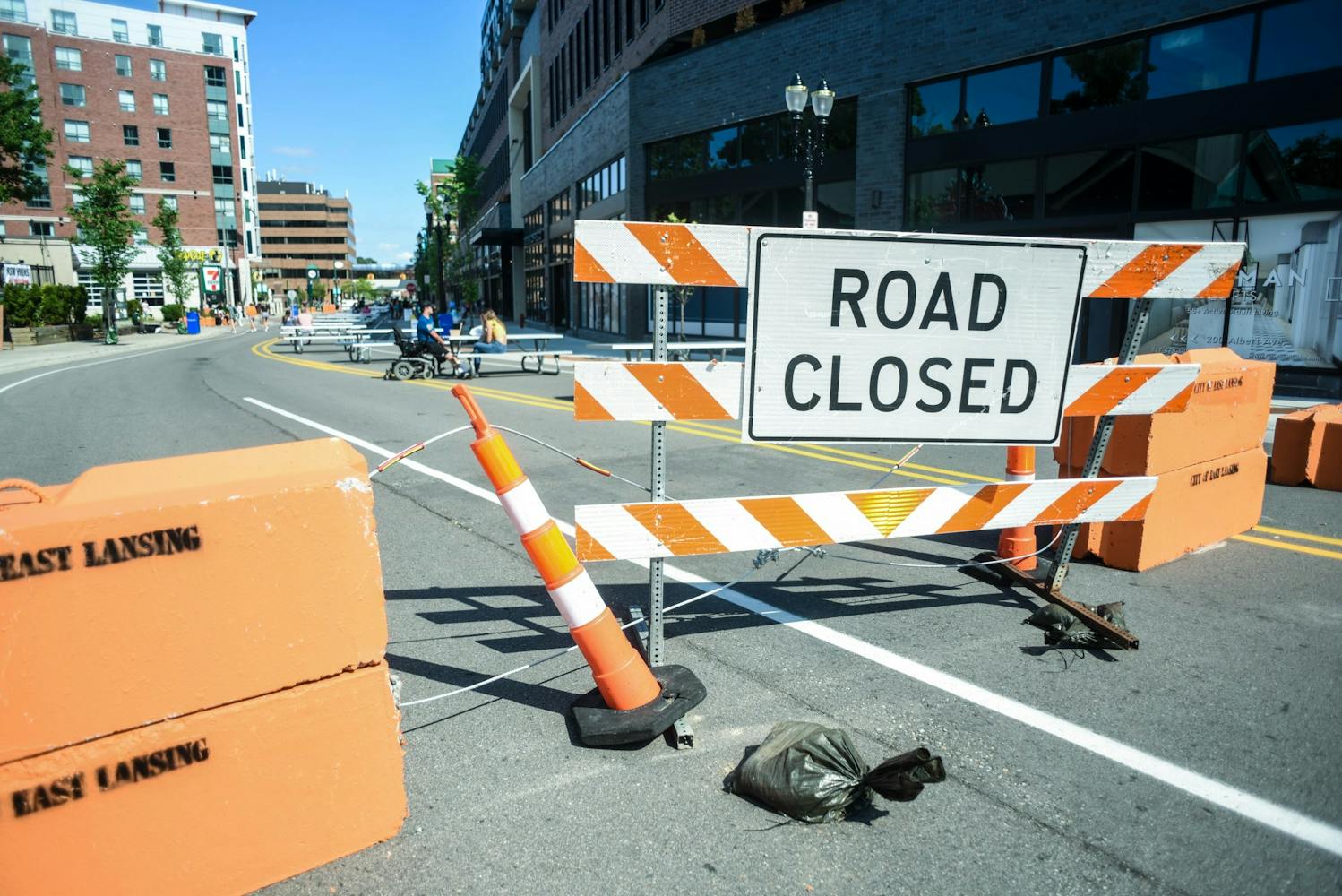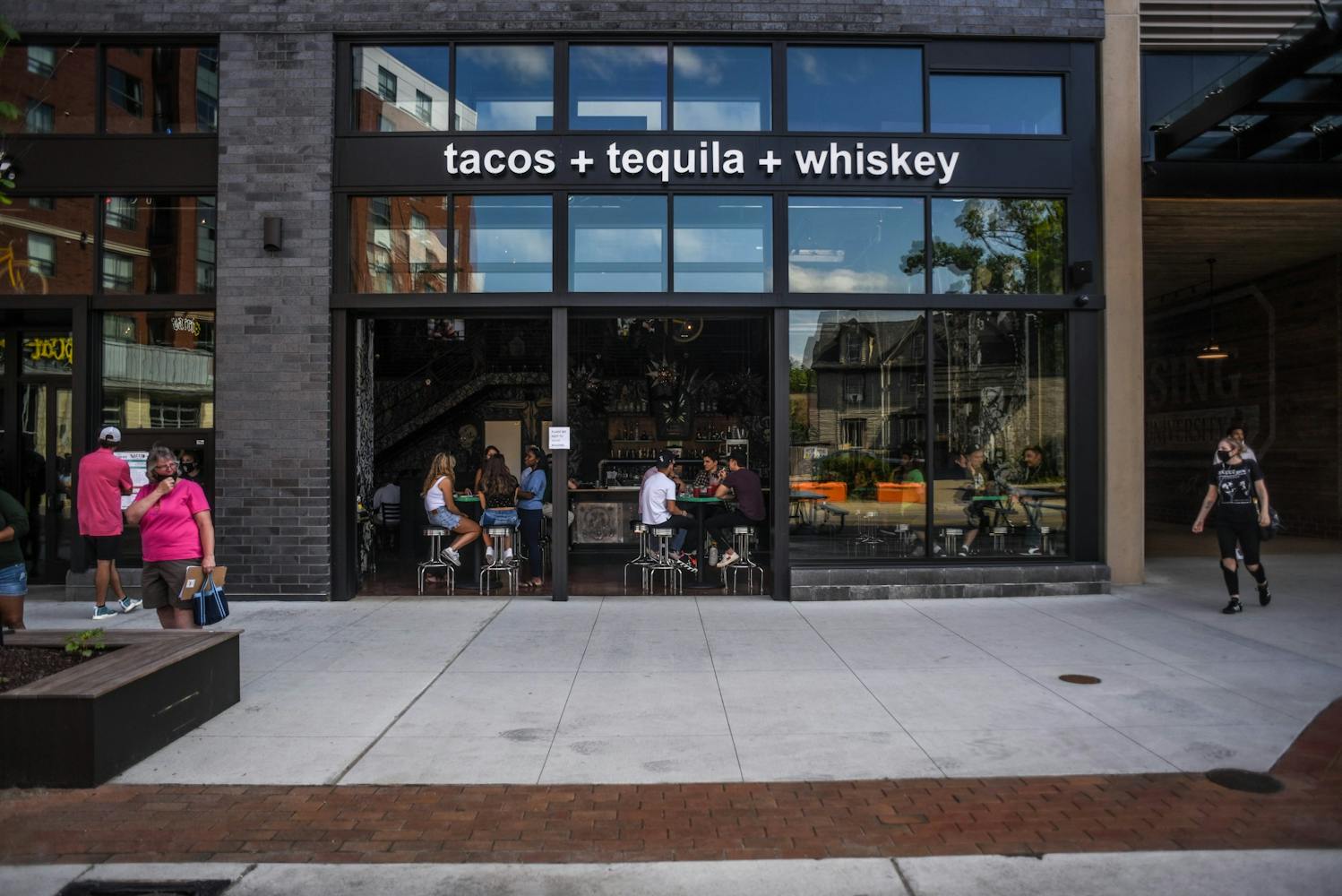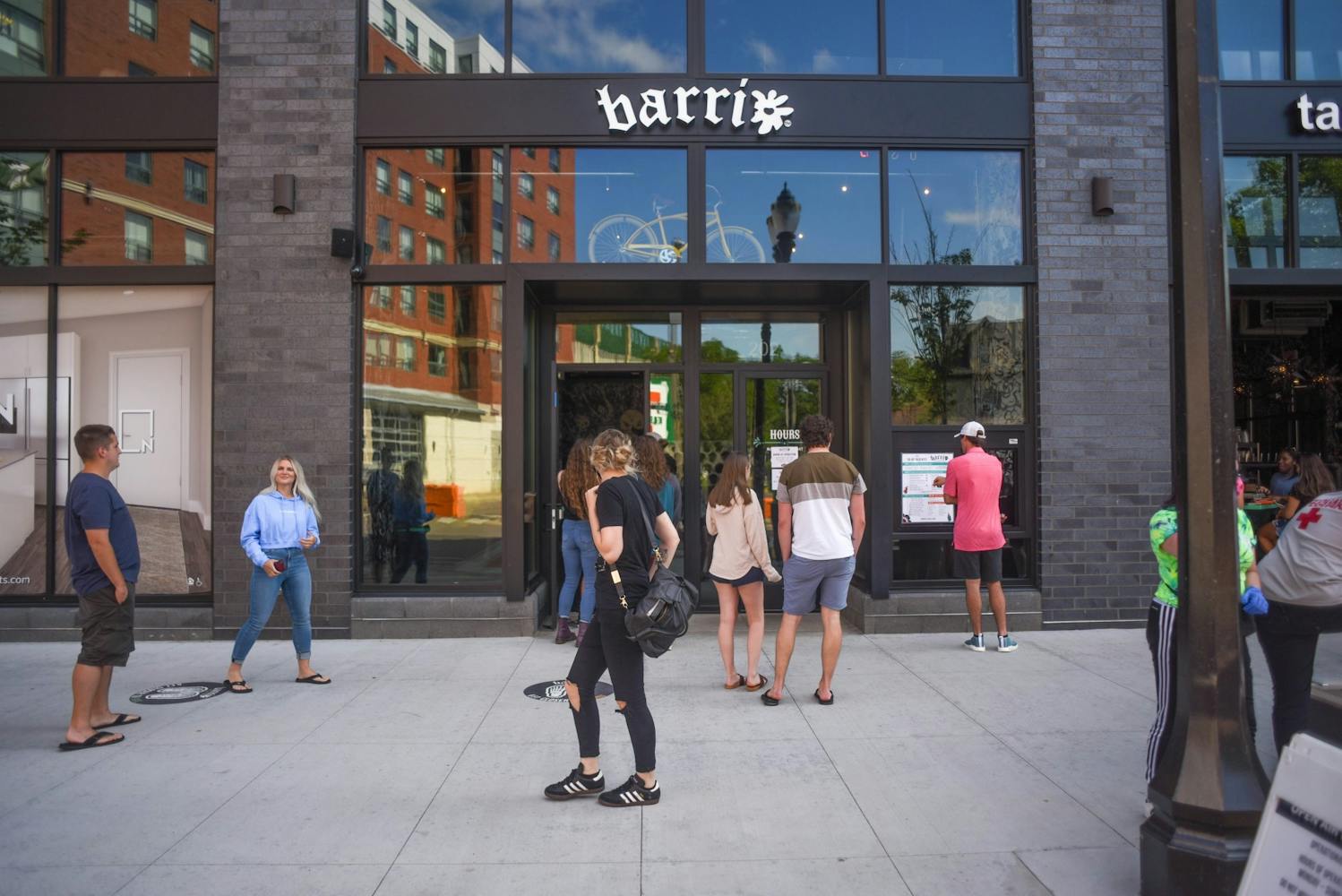After Michigan Gov. Gretchen Whitmer permitted the reopening of bars and restaurants with limited capacities June 8, restaurants are now beginning to open their doors to customers once again.
In accordance with the governor’s order, all restaurants must facilitate socially distant dining, and they cannot allow the number of guests inside to exceed 50% of their standard capacity.
An issue that dining establishments are encountering, however, is a lack of patrons willing to dine in.
“Our outdoor area is doing quite well. … We don’t seem to have any problems keeping those tables hopping right along,” Joe Bell, one of the owners of The Peanut Barrel, said. “It’s just the inside dining is not so good.”
While summer classes at Michigan State this semester are online-only and many retail businesses are still making preparations to reopen, the noticeable lack of people in East Lansing is further impacting business at local restaurants.
“You have to take into consideration that we have no students, no faculty, no staff,” Bell said. “Most of the buildings (on campus) are locked up. Many of the retail stores are still not open.”
The City of East Lansing piloted an Open-Air dining area on Albert Avenue June 11. Patrons who purchase food from a restaurant within three blocks of the dining area are able to consume their food in the area from 11 a.m. to 10 p.m. daily, according to a press release.
Patrons have a two-hour time limit and are asked to adhere to all social distancing guidelines recommended by the Center for Disease Control and Prevention while using the dining area.
Since reopening for indoor dining, The Peanut Barrel, like many other restaurants, has been utilizing technology to prevent the spread of COVID-19 by using QR-style menus that guests can scan with their smartphone camera to view.
Bell said the restaurant has single-use paper menus available for use, too.
Other safety precautions put in place at The Peanut Barrel include the substitution of “condiment trays” that remain on every table for individual condiment packets, increased and routine sanitation procedures and thorough cleaning.
“We have sanitizing procedures — timing, and that sort of thing — on bathrooms, doors, things that are common to everybody and would need to have attention regularly,” Bell said.
Though some food and drink spots have already opened their doors, others are taking more time to facilitate safety for their guests.
Taste of Thai manager Bea Middleton said she hopes the restaurant opens before the end of the month, as the restaurant is taking gradual steps to prepare for diners once more.
The Thai restaurant was redesigned for safer dining practices. According to Middleton, the tables have been rearranged and the sushi bar has been removed from the floor to promote socially distant dining and the comfort of customers.
Middleton said the greatest challenge to reopening is the unknown.
“This has never happened before, so we’re not sure … what would happen,” Middleton said. “If we did open just all at once, would it be just complete chaos? Would our employees be able to handle it? Would our customers cooperate with us in our precautions that we’re taking?”
While some restaurants are taking more time than others to adapt, prepare and reopen, others will not be returning at all — East Lansing’s Blaze Pizza location and all Espresso Royale locations have permanently closed.
“On March 20, 2020, we closed all of our cafes hoping the closure would be temporary,” Espresso Royale said in a statement. “However, as the closure continued, it became impossible for our company to remain viable.”
To protect those who are returning to work, Whitmer signed an executive order that requires businesses resuming in-person work to develop a COVID-19 preparedness and response plan.
Support student media!
Please consider donating to The State News and help fund the future of journalism.
Also, reopening businesses must provide additional training to employees that covers workplace infection-control practices, the proper use of personal protective equipment, information about steps that workers can take to notify an employer of coronavirus symptoms or a diagnosis, and how to report unsafe working conditions.
The governor additionally announced the director of COVID-19 workplace safety position, to which she appointed Deputy Director for Labor in Michigan’s Department of Labor and Economic Opportunity Sean Egan.
In this position, Egan will be responsible for helping to make certain businesses enact such safety measures as they reopen.
As restaurants and bars continue to navigate uncharted waters, workers must do their part by adhering to safety and hygiene guidelines, employers must be more fluid and flexible and customers must do their part by wearing masks, if able, and following best practices, Egan said.
“Reengagement is not a return to business pre-COVID,” Egan said. “We have a new workplace framework that we must accept, adopt and reinforce, day-in and day-out.”
Sansu Sushi, Black Cat and Omi Sushi all politely declined the option to comment.
Beggar’s, Georgio’s, Riv, Charlie Kang, Harrison Roadhouse, HopCat, Sushiya, and Louha’s were unavailable to comment at the time of publication.
Discussion
Share and discuss “East Lansing restaurants struggle to fill tables” on social media.











